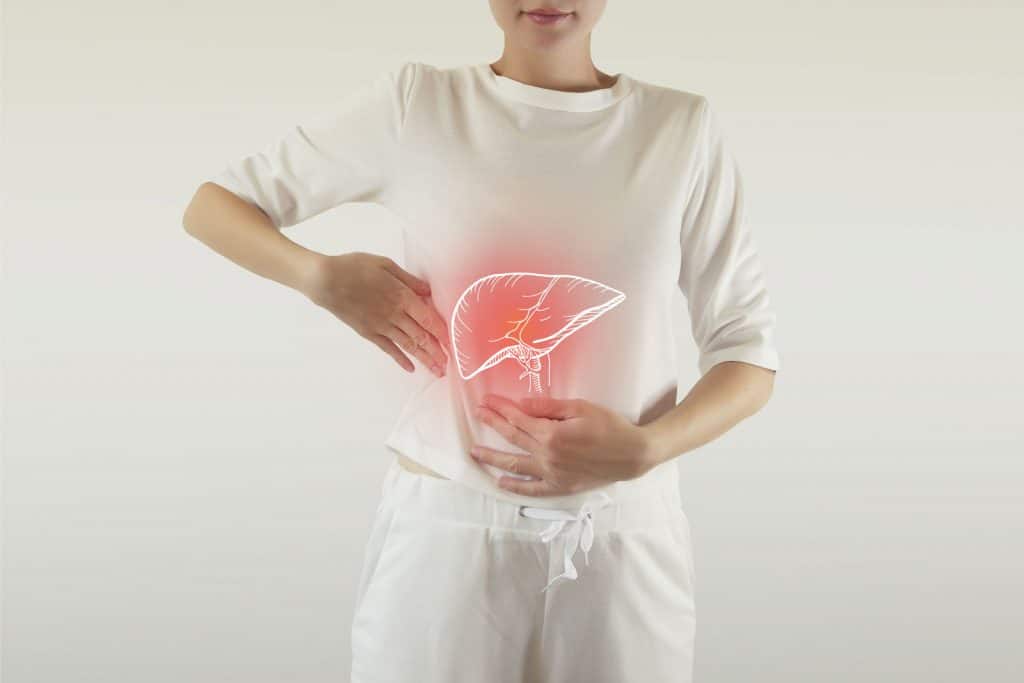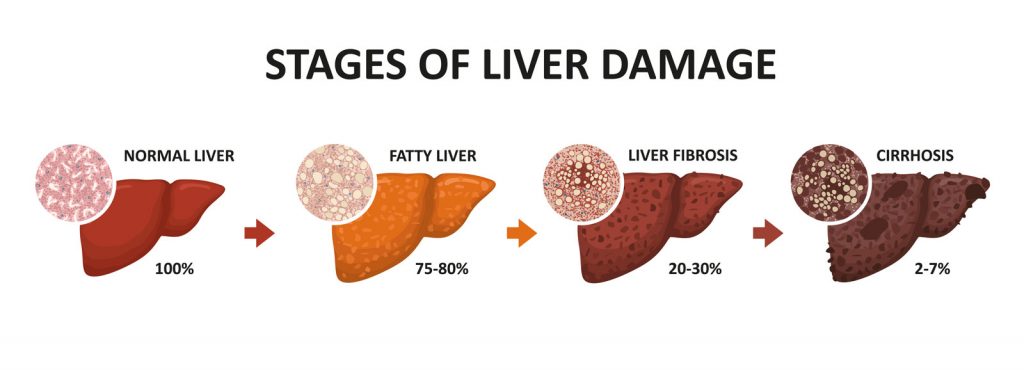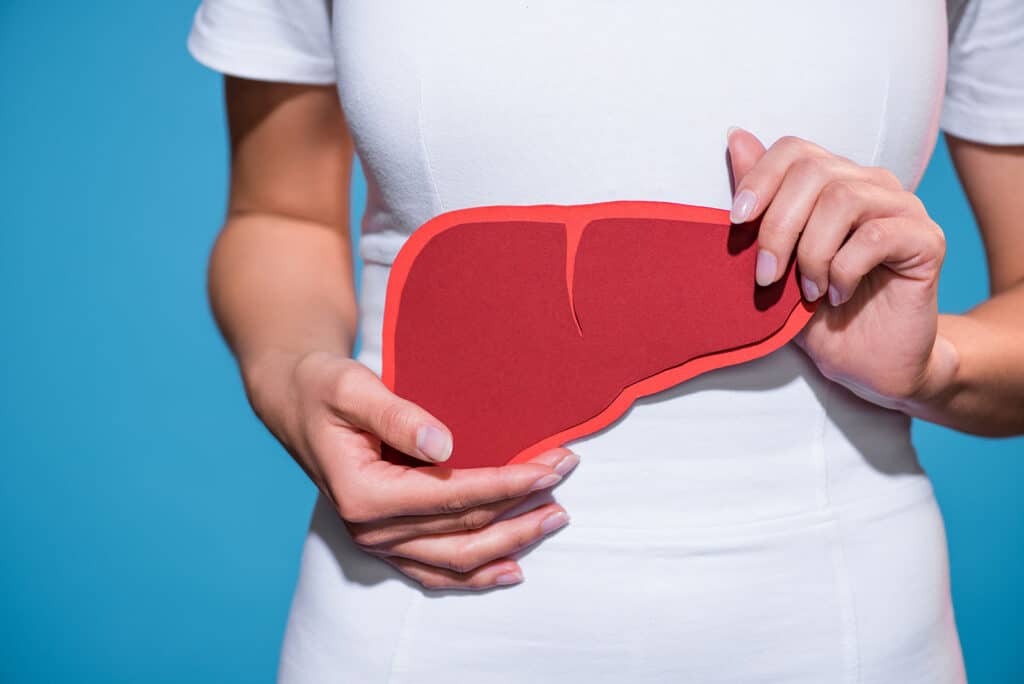Signs your liver is healing from Alcohol
The liver, the body’s largest internal organ, is responsible for filtering out and eliminating various types of waste and toxins from the bloodstream. This includes alcohol. Each time you enjoy an alcoholic beverage, the alcohol must pass through the organ. Up to 90 percent of consumed alcohol is processed in this organ, and the remaining alcohol is expelled via breathing, sweating, and urine. It takes approximately 60 minutes for the body to process a single serving of alcohol from a base level, and this amount of time increases exponentially with additional drinks.

Table of Contents
Signs your liver is healing
Unfortunately, alcohol is toxic to this vital organ. As the organ’s cells process the beverage, the damage is done to the cells’ enzymes. While the occasional drink may not take a severe toll on the organ, regular and a heavy drinkers’ alcohol consumption can lead to serious physical and mental health issues. The amount of damage to the organ with excessive consumption depends on the level of consumption and the person’s gender, weight, genetics, and other essential factors.
The good news for those who are overcoming alcoholism is that the organ can heal itself over time. When alcoholism persists for long periods, can cause significant long-term damage to your liver, It can destroy liver cells and alcoholic cirrhosis can occur. This scarring, known as cirrhosis, If your liver has scar tissue, it is irreversible and will impact the organ’s functionality for the rest of a person’s life. Are you wondering if your liver is healing? Depending on the severity of the damage, it could take several days to many months for the organ to heal fully, but you may notice some indicators that healing is underway. What should you know about damage to this vital organ?
Signs Your Liver Is Damaged
Alcohol addiction is only one of many causes of organ damage. For example, both a hepatitis infection and various autoimmune conditions can cause severe damage. Medications, excessive fat around the organ, exposure to specific types of chemicals, genetic disorders, and even some types of liver cancers can result in organ damage. The adverse effects of alcohol consumption may often be combined with one or more of these other causes of serious harm.
Generally, women can have one to two servings of alcohol daily without causing permanent damage, and men may have up to three servings daily. The difference between genders is the prevalence of a digestive enzyme in men. Regardless of how frequently or heavily you drink alcohol, knowing the signs of organ damage and taking damage quickly if you notice any concerning symptoms is essential.

Early stages of Liver Damage
Some of the early signs that indicate developing liver failure are:
- dark urine
- fatigue
- nausea
- vomiting
- tenderness in the upper-right section of the abdomen
- unexplained weight loss
- diarrhea
- confusion
- drowsiness
As damage to the organ becomes more serious, these symptoms may be combined with others. Signs of severe organ damage include:
- Swollen feet and ankles
- Fever
- Itchy and yellow skin
- Abdominal swelling
- Blood in the stool or urine
- Complete organ failure
When you identify the signs of damage early enough, you may be able to start the healing process before permanent damage occurs.
How to Heal Your Body
Your organ will need to rest extensively for it to heal correctly. Each time you expose the organ to alcohol, it fights infection or is exposed to other damage-causing events, it must work overtime to do its job correctly. When this happens, the organ does not have ample time to rest and heal. With this in mind, it is crucial to reduce alcohol consumption drastically. If the alcohol-related liver disease develops, consider abstaining from all alcohol consumption for at least four to six weeks. If or when you start drinking again, avoid binge drinking and keep your intake to a minimum to prevent additional organ damage.
Some medications are processed through this vital organ. This means that consuming them could strain the organ. Rest will not be possible while these medications are in your system. Some of the medicines that should be avoided while detoxing from alcohol include Azathioprine, Phenytoin, and Acetaminophen. In addition, antibiotics like Amoxycillin and statins should be avoided. Non-steroidal anti-inflammatory drugs, called NSAIDs, should not be used. Even some herbal supplements can strain the organ and should be avoided. These include kava, black cohosh, and ma huang. Work with your doctor to find alternative medications. If you must take some of these medications or herbs, do not consume alcohol in conjunction with them.
Because excessive fat around the liver will also strain the organ, you should do your part to maintain a healthy weight. Get plenty of exercise and rest days, and eat a healthy, low-fat diet. An optimal diet to promote healing includes whole foods, lean meat, seafood, beans, whole grains, and fresh produce. Avoid fatty cuts of meat and processed foods. The organ’s health depends on hydration, so ensure that you drink a good amount of water each day.
Infections like hepatitis can wreak havoc on the organ. While you should take steps to protect yourself against diseases at all times, it may be particularly crucial when you are detoxifying from alcoholism and trying to heal your liver. Keep in mind that Alcoholic Hepatitis A is usually fully treatable, but Hepatitis B and C may turn into chronic conditions that result in severe organ damage over time. You can reduce your likelihood of contracting these infections by not having unprotected sex and not sharing toothbrushes, needles, nail clippers, and razors. If you plan to get a tattoo or need a medical procedure, ensure that the facility follows proper sterilization procedures for equipment.
Because other factors can harm the organ, it is essential to seek guidance from your doctor regularly. If you have not had a checkup recently, now is the time to schedule an appointment. In addition to getting regular checkups, you should see your doctor as soon as possible if you spot any indicators of potential organ damage.

Physical Signs to Look For
While the liver can regenerate naturally under the right conditions is impressive, the process can be taxing in the body. As your organ is healing, you may notice a variety of symptoms. While some symptoms are unpleasant, others can be severe if the organ is severely damaged. For example, you may experience restlessness, insomnia, and confusion as the organ heals. You may also notice cardiac symptoms, such as increased blood pressure and a higher heart rate. In addition to these symptoms, tremors, anxiety, headaches, vomiting, and nausea may occur. Some of these symptoms may be present to varying degrees for weeks in some cases.
Healing can still occur even if you have been suffering from alcoholism for many years. However, because some of the signs of healing are comparable to those of severe organ damage, it is crucial to seek medical assistance. Your doctor can monitor the recovery process and provide medical support as needed. Your doctor may even help you to identify other signs that the organ is recovering from damage. These could relate to amino acid regulation, blood clotting capabilities, immune factors, glucose levels, bilirubin removal, glycogen production, and more.
Alcoholism can wreak havoc on your life in numerous ways, and its effects directly impact health and longevity. Excessive consumption may only yield temporary or short-term damage to the liver if consumption ceases promptly and care is taken to promote healing. However, there may be instances when organ damage is permanent. If this happens, managing the symptoms with medical assistance is necessary.
FAQ
How long does it take to repair your liver from drinking?
Can an alcohol-damaged liver repair itself?
How do I know if my liver is damaged from alcohol?

